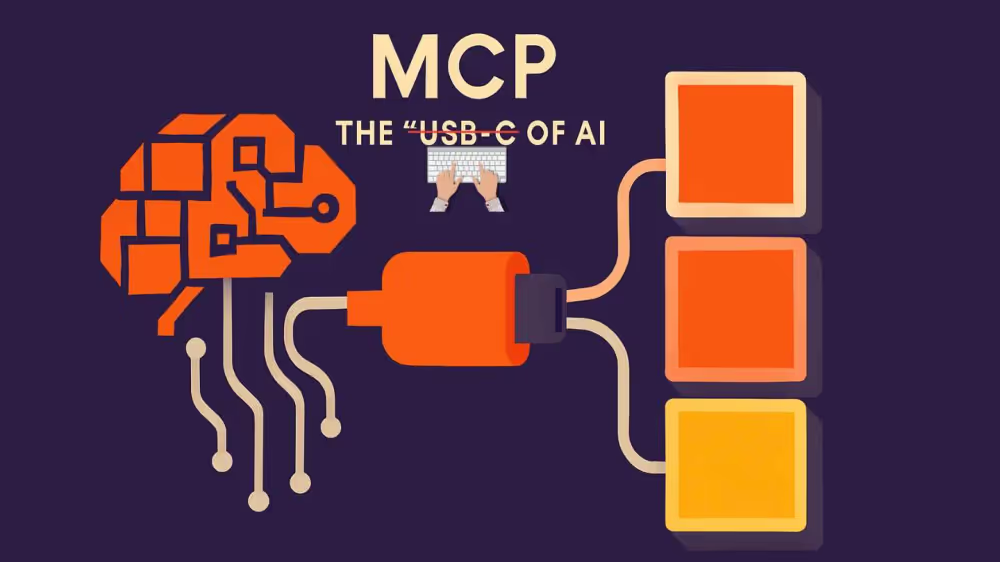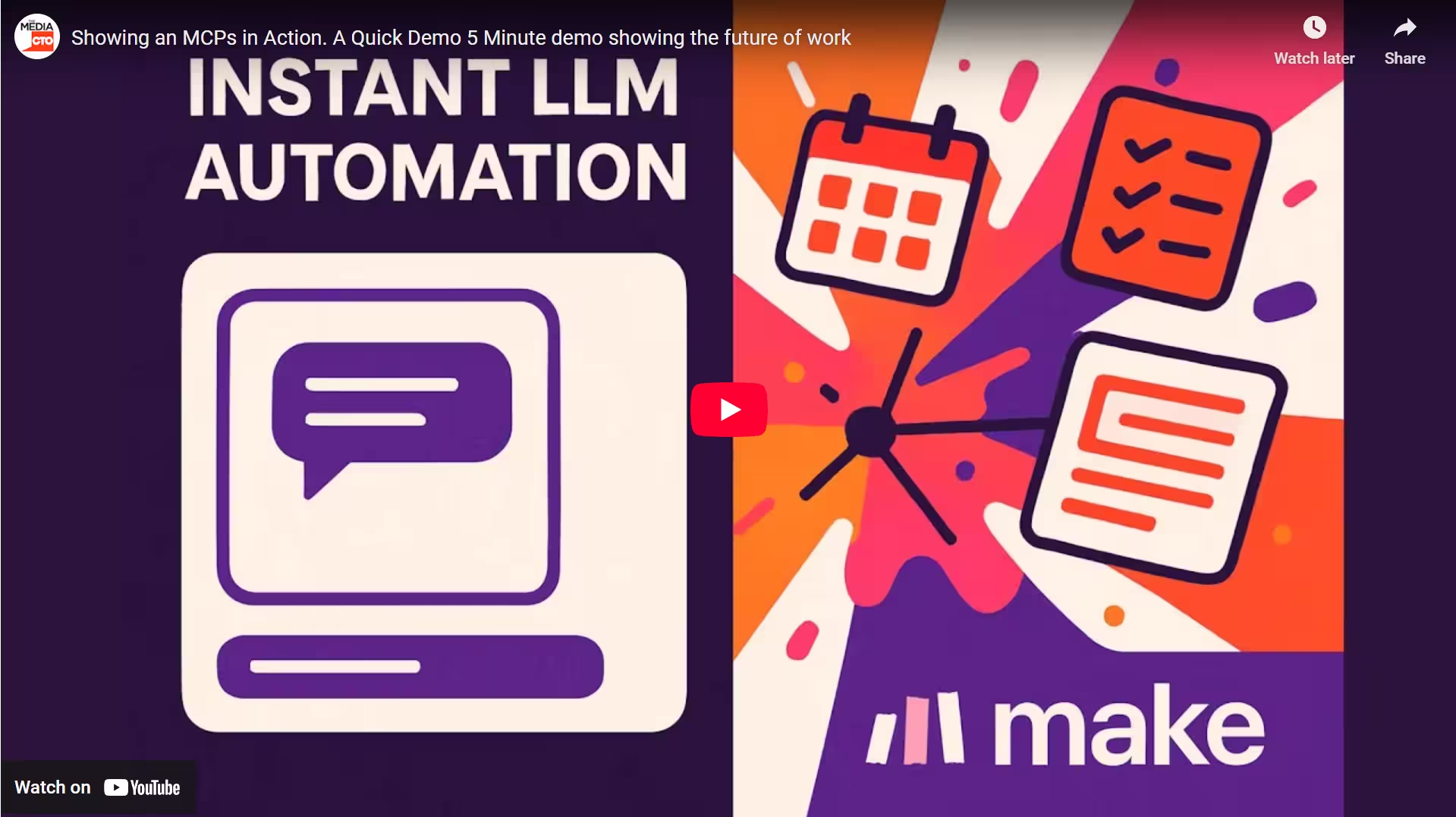MCP stands for Model Context Protocol, which has become an AI buzzword in under a year. You should pay attention to it. It is already trending.
It was first proposed by AnthropicAI, Claude's parents, in 2024, and now, just under a year later, it is popping up everywhere. Here is why.
MCP has been described as the USB-C of AI. That's a neat description, but let me take it further. It's more like giving your LLMs a keyboard and a mouse to get stuff done.
MCPs the API for APIs
It sounds bonkers, but I think of it as an API for APIs. APIs allow you to connect two systems, shove data back and forth, and trigger functions, but are fundamentally request-based.
Now, stick an LLM into your automation, and you have a decision-making unit that knows “update my task to contact James” is the same as “I have contacted James, mark it as done” all it needs is a way of doing that on your CRM.

That is where MCPs come in. MCPs enable both data retrieval and direct control over applications. This means your AI agents powered by, ChatGPT, Claude etc…… can not only fetch information but also perform complex, outcome-oriented tasks because they have both the data pipeline (API) and the user interface controls (keyboard/mouse) in one protocol.
So, Who is on the MCP Bus?
The other big reason to pay attention is that while Anthropic proposed the open standard OpenAI, Google and big SaaS companies like HubSpot and other tech heavyweights have committed to it in a big way, so it's here to stay.
It is also super simple to implement, and ideas that combine simplicity with great functional value usually win.
It will not be long, and most of us, if you aren't already, will be co-working with some AI client.
So here is a real-world example of how, in that reality, MCPs will make a difference. Take the speaker confirmation event.
A whole bunch of things now need to happen:
- You, as the producer, will update your spreadsheet (because your speaker management system is a bit naff)
- The speaker management system will need updating
- A CRM update is needed because it's not the same as the speaker management system
- Bio and photo need collecting
- The website will need updating
- The event app also needs updating
- Socials need to be sent
- The speaker needs to be registered for the event (because registering on the speaker management system is not enough)
If every system had an MCP server and you had them connected up, you would go to your GPT and say.
“Adam has just confirmed to speak on ‘Why events are getting AI all wrong’ in the 5 pm graveyard session on the second day. Here is his LinkedIn, pull together a bio and update all systems”
And that's it; you would be done.
In essence, solutions with an MCP will allow AI agents to fully use them to do much more complex things.
All this is here now; our automation platforms of choice, Make.com and n8n, have already got it. I hope the short video below is a better way of bringing this to life and gives you a taste of what can be done.

Many modern website builders, like Webflow and even older ones like Wix, have it, which means keeping all those pages on a website in sync just got easier.
This gives you a glimpse into how work will be done in the future. The bigger question is if I can do all my work from inside Claude, OpenAI, etc., by telling it what I need to get done in a simple way, like “Adam has just confirmed as a speaker, update all systems.”
Why do I need so many systems, or is it time to reimagine the systems I need?



